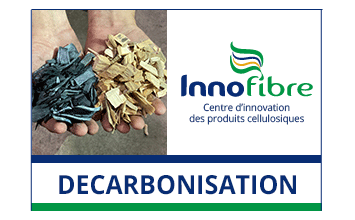MSU Department of Forestry partners with Natural Resources Institute Finland to facilitate workshop on climate-smart forestry products.
EAST LANSING, MICH. – Researchers and leaders of government and industry from Finland, Michigan, Maine, Washington and other states will gather in Helsinki, Finland, on May 26, for a unique set of workshops focused on biobased forestry products. Attendees from across the United States and Europe will advance climate change solutions by considering the unique ways in which the full cycle of forestry products – from resilient forest management to manufacturing to recycling or re-use at the end of a product’s life – can facilitate carbon storage and the displacement of greenhouse gas emissions.
“Climate change is the grand challenge of our time, and exploring biobased circular economic models can offer a path forward in mitigating the climate crisis,” said Kelly Millenbah, dean of the College of Agriculture and Natural Resources at Michigan State University (MSU). “But to make an impact, we will all need to work together – business leaders, natural resource experts and policymakers from many nations. It’s exciting to see that happening between leading global innovators in American and European forestry.”
“Forests and wood products are powerful ways to reduce carbon in the atmosphere and store it for long periods of time,” said Richard Kobe, chair of the Department of Forestry at MSU. “I am delighted that we are bringing together diverse leaders from Finland and Michigan and other northern states to forge collaborations on this crucial issue across the entire value chain, from field-based forest management to end of life re-use or recycling.”
This expert-facilitated workshop will be co-led by MSU’s Department of Forestry and the Natural Resources Institute Finland (Luke), the leading Finnish natural resources research institute. Ranked among the top 10 forestry and agriculture universities in the world, MSU’s Department of Forestry has deep expertise in climate change and forest bioproducts, including the Forest Carbon and Climate Program, MassTimber@MSU, and Green Bioproducts Science and Engineering Lab. These MSU programs will feature prominently in the two-day event.
“This is an excellent opportunity for us to discuss and plan submission of collaborative proposals to the European Union or federal agencies in the U.S., or to form and lead industry-funded consortia,” said Mojgan Nejad, associate professor in the departments of Forestry and Chemical Engineering and Material Science at Michigan State University. “I am very excited to facilitate a session on lignin valorization that will allow me to collaborate closely with world-renowned lignin scientists and meet other Finnish lignin producers.”
Nejad heads the Green Bioproducts Science and Engineering Lab, leading a team of 7 graduate students and 4 undergraduate research assistants in their efforts to find biobased alternatives to petrochemicals used in resins, such as lignin-based coatings, foams, and adhesives.
Finland, Michigan, Maine and Washington share similar climates and long traditions of forest-based industries, and the MSU-Luke workshop caps a trade and study mission of delegates primarily from these states. The upcoming workshop originated from a 2020 memorandum of understanding between Michigan and Finland, as well as parallel agreements with Finland between Maine and Washington to cooperate in advancing a sustainable forestry-based economy. Cooperative relationships between Business Finland and state agencies such the Michigan Department of Natural Resources and the Michigan Department of Agriculture and Rural Development, alongside relationships with parallel agencies in other states, will elevate individual efforts to develop forest-based economies and job growth while combating climate change.
“International and cross-disciplinary partnerships are at the core of these workshops,” said Sandra Lupien, director of MassTimer@MSU. “Mass timber” is an umbrella term for a variety of engineered wood building construction materials that can be used to build large and tall buildings that store carbon more sustainably and efficiently while supporting forest health and creating new jobs and economic development opportunities. MassTimber@MSU is a cross-disciplinary program that advances mass timber construction and manufacture through outreach, research, education, policy and partnerships.
“The group I’m leading includes forestry and building industry participants, academic researchers and policy makers from across the U.S. and Finland,” said Lupien “Together, we will explore strategies to extend the carbon benefits of mass timber by designing materials, buildings, construction processes and policies to ensure that when it’s time to deconstruct a building, its mass timber columns, beams and panels have a climate-friendly ‘next life.’”
The Michigan Department of Agriculture and Rural Development and the Michigan Department of Natural Resources are leading Michigan’s delegation. U.S. participants’ travel funding to the MSU-Luke workshop is provided by a grant to MSU from the U.S. Embassy in Finland, and U.S. Ambassador to Finland Douglas Hickey will open the workshop with his remarks together with Jaana Huso-Kallio, Permanent Secretary of Finland’s Ministry of Agriculture and Forestry. The workshop will be hosted by Business Finland in their Helsinki headquarters.
Source: Michigan State University













